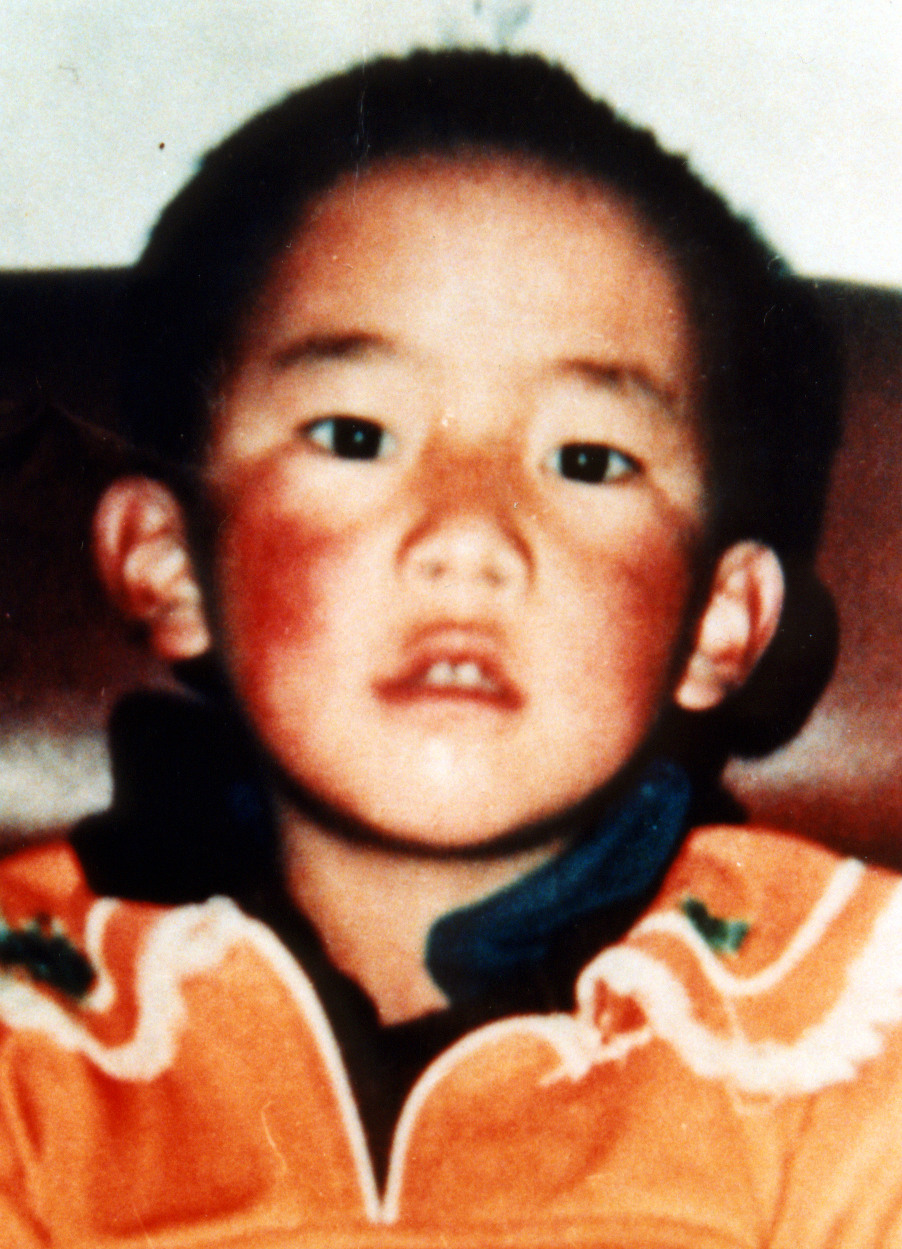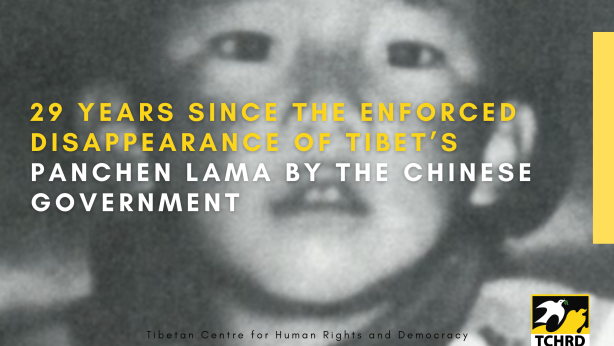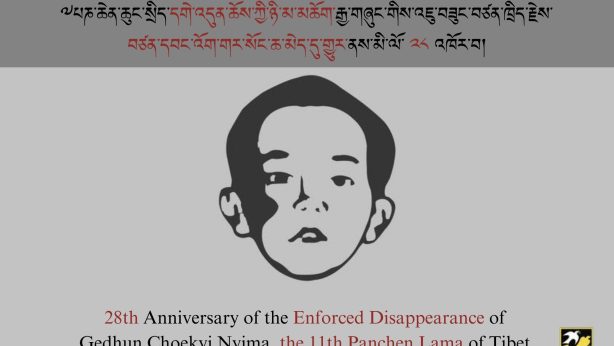China appoints its choice of Panchen Lama as head of party’s religious body, ignores calls for release of the other disappeared Panchen Lama

Gyaincain Norbu (Gyaltsen Norbu), the 11th Panchen Lama appointed by Chinese authorities to nullify the Dalai Lama’s selection has been appointed president of the regional branch of Buddhist Association of China (BAC) in Tibet Autonomous Region (TAR).
On 22 June this year, Wu Yingjie, the Chinese Communist Party Secretary of TAR met with the newly elected members of the BAC’s TAR branch, a party controlled supervisory organ on Buddhism in People’s Republic of China.
In his address, Wu highlighted the major priority areas of China’s religious policy the prominent among which are the requirement to “follow party guidelines, deepen the spirit of patriotism in Tibetan Buddhism, hold the banner high to oppose separatism, prevent foreign infiltration, and strive hard to adapt religion to socialist society.”
The atheist Chinese state has long attempted to manage and control religion to the extent of including provisions on religious freedom in its constitution. However, the constitutional provisions exist alongside an intricate system of religious administration that sets the policy on the definition, scope, and character of religious activity and criminalise so-called abnormal or superstitious religious activities. The state-approved administrative organisations and associations such as the Religious Affairs Bureaus (RAB) and BAC act as state agents responsible for interpreting and adapting the teachings of Buddhism into party’s religious policy. In Tibet, the BAC has built new Buddhist institutes and colleges to cultivate patriotic Buddhist monks and nuns including reincarnated lamas.
The BAC is a patriotic organization controlled by the party’s United Front Work Department. Founded in 1953 in Beijing, its members, mostly prominent Buddhists and intellectuals, were responsible for educating the local Buddhist communities on state policy and reporting information to the state about what Buddhists were thinking. In 1957, the BAC established branches at all levels of governments. Both BAC and RAB have always been under the authority of United Front Work Department (UFWD). The members of BAC are usually state bureaucrats, clergy, and establishment intellectuals that adhere to the party’s religious policy.
The accession of China-appointed Panchen Lama to the post of the BAC’s TAR regional branch occurs in the shadow of UFWD assuming near absolute control over religious affairs at all levels of government. In one of the signs that the party is returning to its totalitarian roots, the UFWD has been granted an elevated status to manage the party’s relations with religious believers at least since last year. Reminiscent of the 1940s, the UFWD now controls all religious affairs through its religious and ethnic affairs bureau.
A Pew Research Center survey estimates some 245 million Buddhists in China, around 18% of the total national population while another 21% of Chinese adhere to folk religions that often incorporate Buddhist beliefs. Buddhism has been growing fast in China as more Chinese are drawn to the spiritual teachings of highly charismatic Tibetan monks and nuns. Many Chinese Buddhists use the internet to spread their faith as they are unable to form organisations due to the requirement of various documents. Some accuse the government of going against the constitutional provisions by using the repressive state machinery to impose party’s ideology of Marxism-Leninism on the citizens.
The appointment of Gyaincain Norbu, who is also a member of the Standing Committee of the National Committee of the Chinese People’s Political Consultative Conference (CPPCC) largely reflects China’s efforts to raise the profile of its choice of Panchen Lama as a countervailing force against the global popularity of the current Dalai Lama. Most importantly, China needs Gyaincain Norbu to control and manipulate the reincarnation of the current Dalai Lama.
The rising profile of Gyaincain Norbu has done little to silence the growing calls for the release of Gedhun Choekyi Nyima, the Dalai Lama’s selection of the Panchen Lama, who had been disappeared by the Chinese government agents in May 1995. Gedhun Choekyi Nyima has not been seen or heard since. Although China has provided conflicting information on his whereabouts and wellbeing, it has not been backed by verifiable evidence.
The Tibetan Centre for Human Rights and Democracy (TCHRD) calls on the Chinese party-state to cease using religion as a political tool and discontinue the sinister policy of infiltrating and co-opting the Tibetan clergy to advance its agenda of suppressing and undermining the role of religion as an integral part of Tibetan society and culture. TCHRD reiterates its call for the immediate and unconditional release of Gedhun Choekyi Nyima from captivity and the restoration of all of his human rights.


